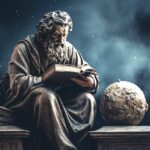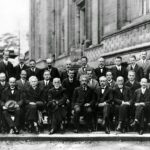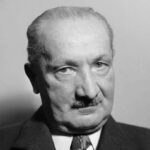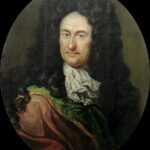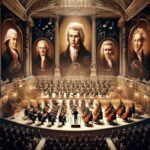From groundbreaking scientists and legendary composers to fearless reformers and cultural icons, Germany has produced some of the most influential figures in human history. These Famous Germans didn’t just leave a mark on their homeland – they reshaped global thought, culture, science, and art. Whether you’re drawn to the philosophical depths of Nietzsche, the mathematical brilliance of Gauss, or the cinematic flair of Marlene Dietrich, this is your gateway to the people who helped define not just Germany, but the modern world. Explore the personalities who turned ideas into revolutions, theories into breakthroughs, and dreams into cultural milestones. In this category, you’ll discover writers, thinkers, inventors, musicians, artists, political leaders, and modern personalities who continue to shape how we live, create, and think today.
The Legacy of Germany’s Greatest Minds
When we think of Famous Germans, names like Albert Einstein, Johann Wolfgang von Goethe, and Ludwig van Beethoven come to mind instantly – and for good reason. These individuals redefined the boundaries of knowledge and creativity, pushing their fields into new territory. Germany’s complex history has been shaped by intellectual rigor, artistic expression, and scientific innovation. The legacy of its notable citizens spans centuries, from medieval philosophers to contemporary tech innovators. Their contributions continue to echo in classrooms, laboratories, concert halls, and even space science. This section is more than a hall of fame – it’s an evolving story of brilliance and boldness. By learning about these extraordinary lives, we connect with the larger narrative of German culture and its impact on global civilization.
Explore the Figures Who Define German Legacy
Scientists & Inventors
Meet the brilliant minds who transformed science, medicine, and technology.
Albert Einstein: The man who changed physics with E=mc².
Alois Alzheimer: His research uncovered one of the most studied diseases today.
Wilhelm Röntgen: Inventor of the X-ray and Nobel Prize winner.
Emmy Noether: Her work underpins much of modern physics.
Konrad Zuse: Built the first programmable computer.
Writers & Poets
The written word is where Germany shines, from dark romanticism to bold political critiques.
Johann Wolfgang von Goethe: Literary giant of the Enlightenment.
Erich Maria Remarque: Captured the trauma of war like no other.
Friedrich von Schiller: Explored freedom, beauty, and revolution.
Hermann Hesse: A voice for self-discovery and spiritual growth.
Philosophers & Thinkers
Germany is synonymous with deep thought and influential philosophical schools.
Immanuel Kant: Father of modern Western philosophy.
Georg Wilhelm Friedrich Hegel: Creator of dialectical thinking.
Friedrich Nietzsche: Provocative philosopher who challenged religion and morality.
Karl Marx: His ideas shaped modern political history.
Cultural Icons & Performers
From opera to film, music to fashion – these Germans made their mark on global culture.
Ludwig van Beethoven: His music still resonates centuries later.
Marlene Dietrich: Glamour, strength, and cultural influence.
Michael Schumacher: Formula One legend and national icon.
Wim Wenders: Filmmaker whose visual storytelling continues to inspire.
Historical Leaders & Reformers
Revolutions, reforms, and unification – these names are central to Germany’s political evolution.
Otto von Bismarck: Architect of German unification.
Martin Luther: Sparked the Protestant Reformation.
Charlemagne: Laid the foundations of modern Europe.
Frederick the Great: Military reformer and Enlightenment monarch.
Why Famous Germans Still Matter Today
The impact of Famous Germans isn’t locked in dusty textbooks – it’s alive in everything from the arts to science to everyday tools. Ever used a coffee filter? Thank Melitta Bentz. Streamed music or scanned a barcode? That technology owes something to German inventors. Heard Beethoven in a Marvel movie? That’s German influence too. Across German schools, students still memorize Goethe. German orchestras regularly perform Wagner. German thinkers continue to be studied in philosophy departments worldwide. Even tourists in Berlin find themselves drawn to the legacies of Einstein, Marx, and Schiller – not as distant icons, but as threads in a living cultural fabric. These figures appear in pop culture, politics, international diplomacy, and everyday education. Knowing their stories deepens not just your knowledge of Germany, but of how human progress happens – boldly, creatively, and sometimes against all odds.
Discover the Lives Behind the Legends
The world would look very different without the contributions of Famous Germans. Their ideas, innovations, and creations continue to shape not just Germany, but the global stage – from science labs to movie sets, university lecture halls to symphony stages. So what are you waiting for? Dive deeper into their lives, works, and legacies in our full Famous Germans List. You’ll find themed collections, quotes, biographies, and surprising insights that make history feel personal.
- Artists & Composers
- Scientists & Inventors
- Philosophers & Thinkers
- Political & Historical Leaders
- Writers & Poets
- Modern Personalities & Celebrities
- Explorers, Theologians & Miscellaneous Figures
Artists & Composers
Albrecht Dürer was a central figure of the German Renaissance, admired for his precision in engraving and influential woodcut prints.
Caspar David Friedrich captured the spiritual and emotional essence of Romanticism through his contemplative landscapes.
Clara Schumann was a gifted pianist and composer who shaped Romantic music while championing her husband Robert Schumann’s legacy.
Felix Mendelssohn composed the iconic “Wedding March” and brought Bach’s music back into the public spotlight.
Franz Xaver Winterhalter was a celebrated portraitist of European royalty during the 19th century.
George Frideric Handel gained international acclaim for his operas and oratorios, particularly the enduring “Messiah.”
Johannes Brahms balanced traditionalism and innovation, becoming a key composer of the Romantic period.
Ludwig van Beethoven forever altered classical music with his symphonies, even after losing his hearing.
Richard Wagner was a revolutionary opera composer who redefined musical drama with the concept of Gesamtkunstwerk.
Richard Wagner and His Women explores the composer’s complex personal life and its influence on his work.
Robert Schumann blended lyrical melody and psychological depth in his Romantic compositions.
Kaethe Kollwitz expressed grief, social justice, and motherhood in her deeply moving prints and drawings.
Sebastian Krüger is known for his hyperrealistic and often satirical portraits, blending fine art with pop culture.
Scientists & Inventors
Albert Einstein is regarded as one of the most brilliant theoretical physicists in history, best known for the theory of relativity and his impact on modern science.
Albert Einstein Quotes showcases the wisdom and wit behind Einstein’s scientific mind, offering timeless reflections on life, creativity, and the universe.
Alois Alzheimer lent his name to Alzheimer’s disease after discovering its pathological features in a groundbreaking early 20th-century case.
Emmy Noether – German Mathematical Genius was a pioneering figure in abstract algebra and physics whose symmetry theorem transformed modern science.
Amalie Emmy Noether offers deeper insight into Noether’s life and contributions that forever changed theoretical physics and mathematics.
Carl Friedrich Gauss – The Prince of Mathematics was a mathematical prodigy whose influence spans number theory, astronomy, and physics.
Wilhelm Conrad Röntgen – The X-Ray Discoverer earned the first Nobel Prize in Physics for his accidental discovery of X-rays in 1895.
Robert Koch revolutionized microbiology by identifying the bacteria behind tuberculosis and cholera, earning a Nobel Prize.
Otto Hahn – German Chemist was instrumental in the discovery of nuclear fission, laying the groundwork for atomic energy.
Konrad Zuse invented the first programmable computer, Z3, paving the way for modern computing.
Carl Zeiss was a groundbreaking optician whose work founded a legacy in scientific and medical lenses.
Hans Spemann and the Beginnings of Cloning chronicles the Nobel-winning embryologist whose research influenced genetics and cloning.
Carl von Linde Who Gave the World the Refrigerator developed refrigeration technology that reshaped food storage and global industry.
Rudolf Diesel invented the internal combustion engine that bears his name, forever altering transportation and engineering.
Melitta Bentz changed the world of coffee forever by inventing the drip-brew paper filter system in 1908.
Katharina Paulus made pioneering strides in aviation by inventing the modern parachute pack in the early 20th century.
Möbius Strip and Its Inventor tells the story of August Möbius and his discovery of the famous one-sided surface in topology.
Philosophers & Thinkers
Arthur Schopenhauer was a leading 19th-century philosopher known for his bleak yet insightful views on desire, suffering, and the human will.
Immanuel Kant laid the foundations of modern Western philosophy with his work in epistemology, ethics, and metaphysics.
Immanuel Kant Quotes features key ideas and reflections from one of philosophy’s greatest minds.
Georg Wilhelm Friedrich Hegel introduced dialectical thinking and shaped German Idealism with lasting influence on political theory.
Friedrich Wilhelm Nietzsche challenged religion and morality with works like Thus Spoke Zarathustra, influencing existentialism and postmodernism.
Friedrich Nietzsche Quotes reveals the provocative and poetic mind of one of Germany’s most iconic thinkers.
Karl Marx developed the theory of historical materialism and co-authored The Communist Manifesto, impacting global politics for over a century.
Friedrich von Schiller blended philosophy, poetry, and drama in works that explored freedom, dignity, and the human spirit.
How German Philosophy Shaped the Modern World explores the far-reaching impact of German thought on ethics, education, and science.
Exploring the Depths of German Philosophy is a thematic overview tracing key figures and ideas from Germany’s philosophical tradition.
Georg Cantor revolutionized mathematics and philosophy with set theory, laying the groundwork for modern logic.
Political & Historical Leaders
Otto von Bismarck – The Iron Chancellor of Germany unified the German states into an empire and dominated 19th-century European diplomacy with his realpolitik strategy.
Martin Luther sparked the Protestant Reformation with his 95 Theses, reshaping religious and political life across Europe.
Charlemagne expanded the Frankish empire and laid the foundation for the Holy Roman Empire, earning the title “Father of Europe.”
Frederick the Great of Prussia was an Enlightenment-era monarch who transformed Prussia into a European power through military prowess and reform.
Helmut Schmidt served as Chancellor of West Germany, known for economic stability and pragmatic leadership during the Cold War.
Gerhard Schroeder was Chancellor of Germany from 1998 to 2005, remembered for his economic reforms and bold political style.
Germany Under Hitler and the Nazi provides an overview of Adolf Hitler’s dictatorship and its catastrophic impact on Germany and the world.
Josef Mengele – the Infamous Nazi Doctor chronicles the atrocities committed by one of the most notorious figures of the Nazi regime.
Baron von Steuben played a crucial role in shaping the American Continental Army and is honored as a military hero in the United States.
Katharina von Bora was the wife of Martin Luther and a prominent figure in the Protestant movement, influencing social and family reforms.
Kaethe Kollwitz – the Artist of Grief also belongs here for her art as a form of resistance, capturing the suffering caused by war and poverty.
Wanderer above the Sea of Fog explores the symbolic representation of leadership and introspection during the Romantic period.
Writers & Poets
Johann Wolfgang von Goethe was a towering figure in German literature, best known for Faust, and celebrated for shaping the Sturm und Drang and Weimar Classicism movements.
Erich Maria Remarque gained international acclaim with All Quiet on the Western Front, a harrowing anti-war novel based on his WWI experience.
Heinrich Theodor Böll received the Nobel Prize in Literature for works that portrayed postwar Germany with clarity, empathy, and irony.
Hermann Hesse explored themes of self-discovery, spirituality, and individuality in novels like Siddhartha and Steppenwolf.
Hermann Hesse: Creativity As a Way To Yourself delves into Hesse’s vision of art and inner transformation as vital paths to freedom.
Wilhelm Hoffmann – E.T.A. Hoffman blended fantasy and the macabre, influencing gothic literature and inspiring Tchaikovsky’s The Nutcracker.
The Grimms’ Brothers Fairy Tales: Timeless Magic in Storytelling highlights the enduring legacy of Jacob and Wilhelm Grimm, who collected and immortalized German folk tales.
In the Shadows of Enchanted Woods: A Journey Through The Grimms’ Brothers Fairy Tales offers an immersive look at the symbolic, psychological, and cultural depth of their stories.
Bertolt Brecht was a revolutionary playwright and theorist who developed epic theatre to challenge audiences politically and emotionally.
Modern Personalities & Celebrities
Marlene Dietrich – The Immortal Legend of Glamour was a pioneering film icon whose sultry voice and strong persona made her one of Hollywood’s most enduring stars.
Michael Schumacher – German Racing Star is a seven-time Formula One world champion and one of the most successful drivers in motorsport history.
Wim Wenders – German Film Director, Producer and Writer is an acclaimed filmmaker known for his existential storytelling and visual poetry in films like Wings of Desire.
Ernst Lubitsch: a German Who Conquered Hollywood brought sophistication and wit to American cinema with his famed “Lubitsch Touch.”
Werner Herzog is a visionary director and documentarian whose work explores obsession, nature, and the human condition.
Boris Becker stunned the world by winning Wimbledon at age 17 and became a tennis legend with six Grand Slam titles.
Otto Waalkes is a beloved comedian and musician who helped define German comedy in the late 20th century.
Eckhart Tolle: Awakening to the Power of Presence rose to global fame with The Power of Now, blending spiritual insight with modern mindfulness.
Rammstein – the creators of ‘Tanz (dance) Metal’ style in music are a globally recognized German band known for their powerful industrial sound and theatrical performances.
Richard Kruspe – Father and Lead-Guitarist of Rammstein is the creative force behind Rammstein’s signature heavy riffs and stage presence.
Gerhard Richter is one of the most important contemporary artists, known for blending realism, abstraction, and photography in his work.
Explorers, Theologians & Miscellaneous Figures
Alexander von Humboldt – German Naturalist and Explorer was a visionary scientist and explorer whose expeditions and writings laid the foundation for modern environmental science.
Albert Schweitzer – Nobel Peace Prize Winner was a theologian, philosopher, and humanitarian doctor whose work in Africa earned him a Nobel Peace Prize.
Carl Clausewitz authored On War, a seminal text in military theory still studied in academies worldwide.
Cosima Wagner – the Lady of Bayreuth and Richard Wagner’s Wife preserved and promoted Wagner’s legacy, transforming Bayreuth into a cultural hub.
The Man Who Founded the First Realschule tells the story of Johann Julius Hecker, whose educational reforms helped shape the modern German school system.
Gottfried Wilhelm Leibniz: A Pioneering Polymath of the 17th Century was a mathematician, logician, and philosopher credited with co-inventing calculus and dreaming of a universal language.
Who Invented Kindergarten? honors Friedrich Fröbel, who revolutionized early childhood education with his play-based learning philosophy.
German Women – Scientists and Inventors celebrates the many groundbreaking contributions of German women in fields historically dominated by men.
German Power Women that Have Changed the World spotlights female pioneers from literature, politics, science, and beyond.
